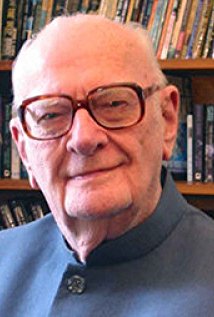Arthur C. Clarke
Known as the "Prophet of the Space Age", Sir Arthur Charles Clarke (1917 – 2008) was a British science and science fiction writer, futurist, inventor, and television series host. Considered one of leading thinkers and proponents of space exploration, he is widely credited for conceiving of the idea of a satellite communication system in a seminal essay he wrote in 1945 while developing air defense radar systems as a young physicist during World War II.
Sir Clarke was an avid popularizer of space travel and a futurist of uncanny ability. On these subjects he wrote over a dozen books including and wrote many essays, which appeared in various popular magazines.
He also co-wrote the screenplay for the movie 2001: A Space Odyssey, one of the most influential films of all time.
In 1961 Sir Clarke was awarded the Kalinga Prize, an award which is given by UNESCO for popularizing science. His other science fiction writings earned him a number of Hugo and Nebula awards, which along with a large readership made him one of the towering figures of science fiction. For many years, Clarke, Robert Heinlein and Isaac Asimov were known as the "Big Three" of science fiction. He served as chairman of the British Interplanetary Society from 1946–47 and again in 1951–53, and was
Sir Clarke emigrated from England to Sri Lanka (formerly Ceylon) in 1956, largely to pursue his interest in scuba diving. That year he discovered the underwater ruins of the ancient Koneswaram temple in Trincomalee. He augmented his fame in the 1980s while hosting several television shows such as Arthur C. Clarke's Mysterious World.
Clarke was knighted in England in 1998 and awarded Sri Lanka's highest civil honor, Sri Lankabhimanya, in 2005. He lived in Sri Lanka until his death in 2008.






